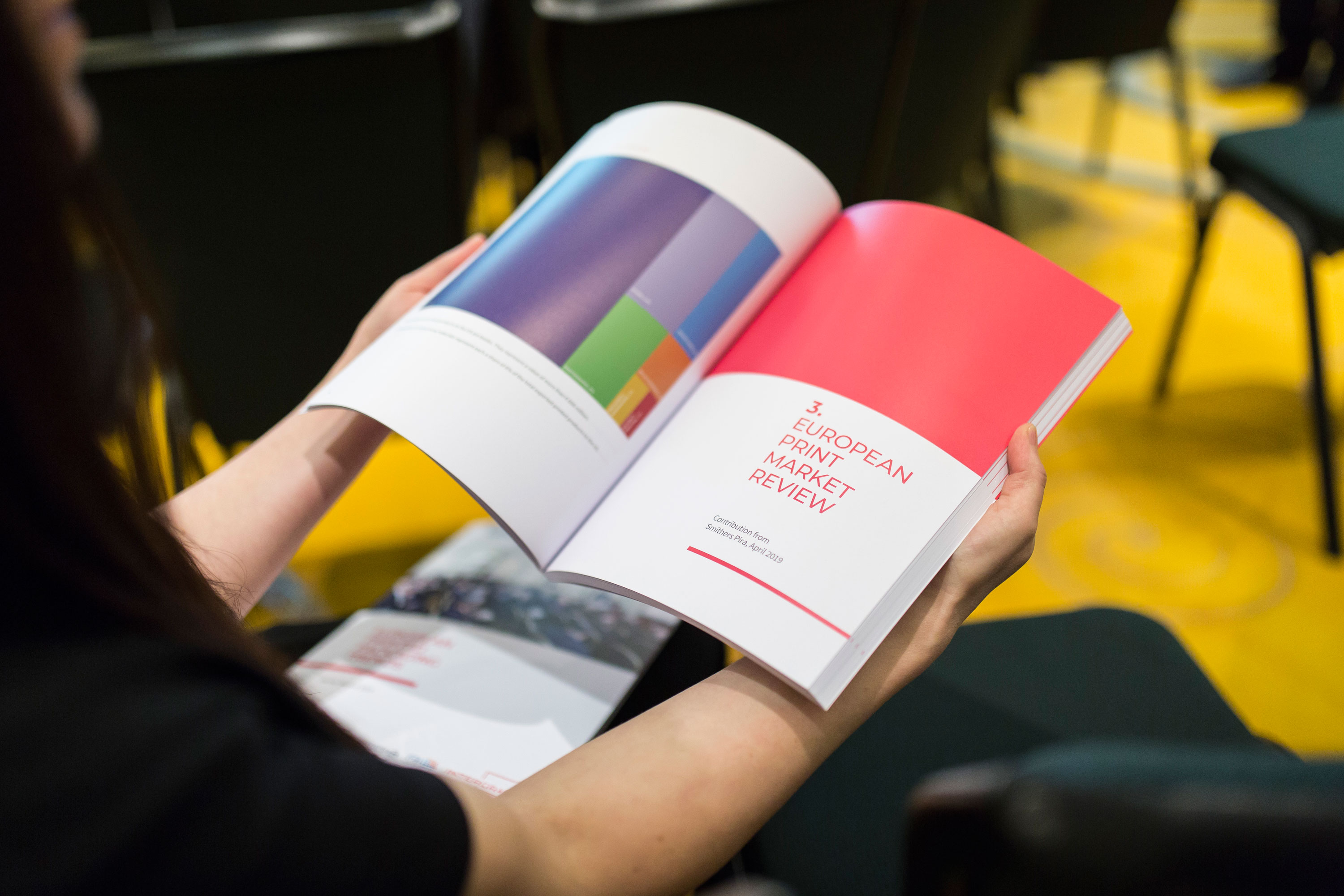The Future of Reading

Printed learning materials play a vital role in the future of education in Europe.
ACADEMIC PERFORMANCE
The PISA 2022 results reveal a substantial decline in reading performance among students in OECD countries, with an average drop of 10 points, equivalent to half a year’s learning. This decline is unprecedented, as the OECD average score has never fluctuated by more than five points between consecutive assessments. Further insights from past and recent PISA data suggest a strong association between digital device use and academic performance. While moderate use of digital devices can enhance academic outcomes, excessive use may lead to lower scores.
The outcomes of Sweden’s national strategy for digitalization of schools shed light on these issues. The strategy advocated for a strong emphasis on developing digital skills and on the inclusion of digital tools in the classroom. Throughout the years, tablets have become the norm and replaced textbooks. However, in the past five years, Swedish children’s reading comprehension skills fell from “high” to “intermediate” according to the Progress in International Reading Literacy ranking (PIRL) (Gustafsson, 2021). The Swedish government took note of criticisms from neuroscientists and paediatricians and decided to bring books back to the classroom. In 2023, the government released the equivalent of €58 million this year so schools can buy new books. In 2024, €44 million will be added. Each student is supposed to have one book per subject.
READING COMPREHENSION
In addition to academic performance, there is an association between the prominence of digital media and the decline in reading comprehension. This is explained by the Shallowing Hypothesis: reading on screens is synonymous with superficial reading behaviours (quick reading, skimming) which can be transferred to other reading contexts, including in-depth reading materials.
This hypothesis is supported by the Stavanger Declaration, the final declaration of more than 200 scholars from the fields of reading, publishing, and literacy. Following 4 years of research on the impact of digitalisation on reading practices, their findings include the following:
- A meta-study of 54 studies including more than 170,000 participants demonstrates that comprehension of long-form informational text is stronger when reading on paper than on screens.
- Readers are more likely to be overconfident about their comprehension abilities when reading digitally than when reading print, especially when under time pressure, leading to more skimming and less concentration on reading matter.
- Contrary to expectations about the behaviour of ‘digital natives’, such screen inferiority effects compared to paper have increased rather than decreased over time, regardless of age group and of prior experience with digital environments.
This research clearly demonstrates that urgent action must be taken to ensure students’ reading comprehension and critical thinking skills are not irrevocably damaged by the rapid and unsubstantiated introduction of screen reading in schools. Print reading must be prioritised over digital reading in schools unless there is a proven learning advantage of digital.
Inaction on the parts of government, education ministries, educators and parents risks a degradation of students’ reading comprehension and critical thinking skills, which could hinder the creation of educated, critical thinking citizens in our society for decades.
THE DIGITAL DIVIDE
In addition to issues related to performance and comprehension, inequalities in digital literacy can hinder children’s educational development.
In the Union, 1 child out of 20 is digitally deprived (meaning they do not have access to the Internet and a computer). In some countries, these numbers are even more substantial. For example, in Romania, 3 children in 10 live in digital deprivation (Ayllón et al., 2023).
According to a meta-analysis composed of 110 studies conducted by the YSKILLS project (funded by the European Commission), children from higher socioeconomic status households tend to have higher digital skills than those from lower income families. Children with earlier access to ICT, whether at home or at school, are more likely to acquire the skills necessary to develop digital literacy (Haddon et al., 2020).
Printed products, such as textbooks, can cater to the needs of children who are at the margins of digitalization.
REFERENCES
- Ayllón, S., Holmarsdottir, H., & Lado, S. (2023). Digitally deprived children in Europe. Child Indicators Research, 16(3), 1315-1339.
- Government Offices of Sweden. (2024, February 8). Government investing in more reading time and less screen time. Retrieved May 2, 2024, from https://www.government.se/articles/2024/02/government-investing-in-more-reading-time-and-less-screen-time/#:~:text=The%20Government%20considers%20that%20pupils,access%20to%20staffed%20school%20libraries.
- Gustafsson, U. (2021). Taking a step back for a leap forward: Policy formation for the digitalisation of schools from the views of Swedish national policymakers. Education Inquiry, 12(4), 329-346.
- Haddon, L., Cino, D., Doyle, M. A., Livingstone, S., Mascheroni, G., & Stoilova, M. (2020). Children's and young people's digital skills: a systematic evidence review. ySKILLS-Youth Skills, (A), 1-152.
- Mangen, D. A., Van Der Weel, Prof. A., & Kovac, Prof. M. (2019). The Stavanger Declaration on the future of reading. In Frankfurter Allgemeine Zeitung. https://futureofreading.eu/wp-content/uploads/2019/01/StavangerDeclarationPressRelease-1.pdf
- OECD. (2023). PISA 2022 Results (Volume I): The State of Learning and Equity in Education. Retrieved May 27, 2024, from https://www.oecd-ilibrary.org/education/pisa-2022-results-volume-i_53f23881-en
{K2Splitter}






